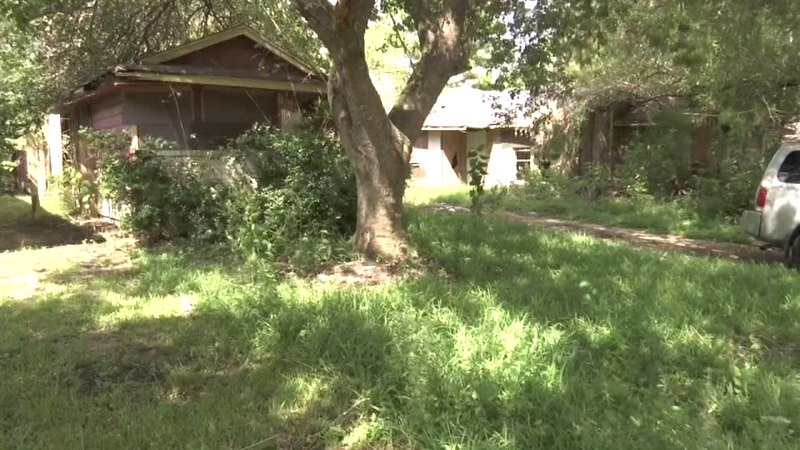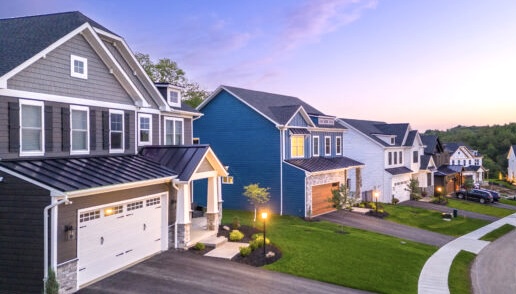15 Smart Moves: When Developers Buys Property Next Door
How will nearby development impact your home? Learn how to protect your property and staying calm at the same time?
When you move into a new home, the surrounding landscape is a big part of the appeal. However, unless your home is next to protected land, there’s no guarantee your surroundings will stay the same. Just the rumor of a developer eyeing nearby land can stir up concern in any neighborhood, leaving you worried that your peaceful retreat might soon be disrupted. While the prospect of new construction next door can certainly be unsettling, how you respond to this news can significantly influence the outcome for you and your community. By staying calm, well-informed, and maintaining open lines of communication, you can navigate the situation wisely, protecting your interests and fostering a positive relationship with potential new neighbors. Conversely, reacting poorly can escalate the issue, making an already challenging situation even more difficult.
Here are some key tips to avoid doing if a developer buys the plot next door.
# 1 - Don’t Give Up
Just because a developer has been looking at local land, there’s no guarantee they’ll buy it, or that they’ll complete work if they do.
Even if this developer is keen, though, there’s plenty you can still do to save your current property. If you’re in a position to do so, looking into land loans based on things like your home equity could see you securing that plot long before a developer does. Equally, calling any village locals to a meeting could see the community coming together to buy and protect that land.
So, never give up – you’re not out of options until there’s an actual contract on the table.
# 2 - Don’t Get Confrontational
This is your home and your lifestyle, so it’s natural you might feel protective and confrontational. But, as well as leaving you at risk of potential legal trouble, confronting any developer, or going out of your way to inconvenience that person, is rarely a good idea.
After all, few developers want to annoy the locals, so even if they do go ahead and buy, they’ll likely take steps to minimize inconvenience, such as limiting loud building work. If you then come along making demands or showing your annoyance, you forfeit these acts of decency. And, that’s when you’re at real risk of a developer who completes building work first thing in the morning or shows a complete disregard for your local landscape.
# 3 - Don’t Change Plans For Your Property
Whether you’ve been dreaming of large windows or an outdoor makeover, it’s also important you don’t derail your property plans because of a developer. This is especially true seeing as big developments can be years in the making. Don’t put your home plans on the back burner because of a ‘just in case’. If you’ve been dreaming of new windows or a stunning outdoor makeover, don’t put your plans on hold because of potential development. Large projects can take years to materialize, and stalling your own home improvements for a ‘just in case’ scenario isn’t worth it. Continue to invest in and enjoy your property. This is your home, and it should be your sanctuary regardless of what may happen down the line.
# 4 - Avoid Immediate Panic or Overreaction
This is your home and your lifestyle, so it’s natural you might feel protective and confrontational. But, as well as leaving you at risk of potential legal trouble, confronting any developer, or going out of your way to inconvenience that person, is rarely a good idea. After all, few developers want to annoy the locals, so even if they do go ahead and buy, they’ll likely take steps to minimize inconvenience, such as limiting loud building work. If you then come along making demands or showing your annoyance, you forfeit these acts of decency. This is when you’re at real risk of a developer who completes building work first thing in the morning or shows a complete disregard for your local landscape.
# 5 - Don’t Spread Rumers
Sharing unverified information or rumors about the development can cause unnecessary panic and strain your relationships with neighbors and the developer. It’s essential to stick to the facts and communicate responsibly. By doing so, you maintain credibility and foster a more constructive atmosphere in your community.
# 6 - Don’t Ignore Communication
Ignoring communication from developers or city officials won’t make the problem go away. In fact, staying informed is one of your best strategies. Engage in conversations, express your concerns constructively, and stay up-to-date with the latest developments. This proactive approach will help you better understand the project and potentially influence its impact on your community.
# 7 - Don’t Violate Property Rights
It’s crucial to respect the property rights of the developer. Actions like building structures on their land or vandalizing the property can lead to serious legal consequences. Focus instead on lawful, positive actions that reflect well on you and your community.
# 8- Don’t File Frivolous Complaints
Filing complaints or legal challenges without valid reasons can waste time and resources, and damage your credibility. Before taking any action, ensure your concerns are legitimate and well-founded. This approach ensures that your complaints are taken seriously and that you maintain a strong position in any negotiations or disputes.
# 9 - Don’t Neglect Your Property
Maintaining your property is more important than ever when faced with nearby development. A well-kept home not only retains its value but also sets a positive example in the neighborhood. Show that you care about your property and community by keeping everything in top condition.
# 10- Don’t Assume the Worst
While it’s easy to fear the worst about a new development, it’s important to keep an open mind. Some projects can bring positive changes, such as improved infrastructure or increased property values. By considering the potential benefits, you might find that the development isn’t as negative as you initially thought.
# 11- Don’t Isolate Yourself
Isolation can make dealing with a new development more stressful. Engage with your neighbors, discuss the development, and form a unified response if necessary. Community support can be invaluable in navigating these changes and finding collective solutions.
# 12 - Don’t Make Emotional Decisions
It’s understandable to feel emotional about changes to your neighborhood, but decisions based solely on emotions can lead to poor outcomes. Take the time to consider the long-term impacts and seek professional advice if needed. Rational, well-informed decisions will serve you better in the long run.
# 13 - Don’t Neglect Due Diligence
Researching the developer and the proposed project is crucial. Understanding the details can help you address any concerns effectively and make informed decisions. Knowledge is power, and doing your homework will put you in a stronger position.
# 14 - Don’t Be Unreasonable
When discussing your concerns with developers or city officials, it’s important to be reasonable. Unreasonable demands or expectations can undermine your credibility and hamper productive dialogue. Constructive communication and reasonable requests are more likely to be taken seriously and lead to favorable outcomes.
# 15. -Don’t Forget to Document
Keep a record of all communications, meetings, and agreements with the developer and city officials. This documentation can be invaluable if disputes arise. Being organized and prepared ensures you have all the necessary information at your fingertips when needed.
Conclusion
By avoiding these actions, you can better navigate the situation and potentially influence the development in a way that considers your interests and those of the neighborhood..
After all, the better you get your property now, the less likely you are to be sorely impacted by developer projects. Even if an apartment complex does end up blocking your lovely view, you’ll certainly be glad you took steps to create an outdoor oasis which, over time, may even end up adding value to your property. That could be crucial if you do move because of building work or anything else in the future.
That’s right. You lose your private oasis, and it could also impact your resale value.
Before you go:
As always, I appreciate your visit, comments, and shares here on the blog! I’d love it if you also follow along with me on Pinterest, Instagram, and Facebook so you won’t miss any of my inspiration and ideas.
QUESTION:
Are you already a subscriber of The City Cottage? If not, sign up below to exclusive access to The Vault, filled with loads of organizing and home decorating + so much more! We are continually adding to it!
Before You Go . .
Enjoyed this post? Let’s stay connected!
📌 Follow me on Pinterest for daily home inspiration!
📷 Join me on Instagram for behind-the-scenes styling tips.
🛍 Shop my favorite home finds here.
📧 Subscribe to my newsletter for exclusive styling tips & freebies!
This post may contain affiliate links. This means I may earn a small commission at no extra cost to you when you make a purchase. Thank you for supporting The City Cottage!










